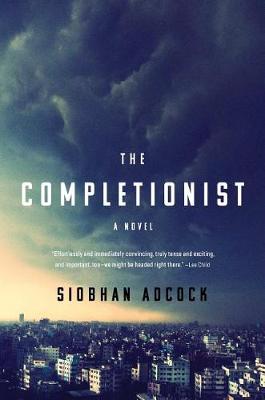
gmcgregor
Written on Jun 22, 2018
Carter is glad to have something to do. Ever since he returned to civilian life from the outlying areas where soldiers fight to defend the shipments of water that keep the city alive, he's been having a rough time. It's not just the PTSD, which he treats with growing consumption of alcohol. It's some sort of bioweapon used against the enemy that he inhaled himself, which he can't figure out how to treat at all. He throws himself into the task of looking for Gardner, who was last working as a Nurse Completionist (a sort of midwife/specialized mother-to-be nurse) at a mysterious clinic, trying to track her down before Fred's forced marriage to the one-night-stand who knocked her up. But Gard remains out of sight while Carter goes farther and farther down into an underworld he didn't even know existed.
Let's start with a positive: I absolutely loved Fred as a character. Hard-driving and irrepressibly foul-mouthed, the book is strongest when she's on the page. While Carter and his father (one of the few other significant characters) generally seem mired in their own dramas, Fred comes in and actually moves things forward. In the back half of the book, we get a long series of past conversations between Fred and Gard before the latter's disappearance, and I wanted it to go on forever because she was such an entertaining, lively presence. I basically wanted the entire book to be from her perspective.
But it wasn't, and the choice that Adcock made to have Carter as the protagonist was a significant factor in the book's failure to launch, for me. He's not honestly very interesting, and spends most of his time either drunk or fighting off symptoms of his poison exposure, which makes everything that happen seem disconnected from reality in a way that was not effective. And, not to spoil the book, but the post-apocalyptic world it's set in, in which women who do get pregnant are subjected to almost impossible demands to care for their child literally as soon as its conceived, didn't hold up to scrutiny for me. It would seem that if babies are rare and precious, there'd be more support for the mother rather than punishments. I get the parallel she was going for with our own world, with the expectations we put on mothers and very real pushback they get for failing to meet them perfectly, but I didn't think it really worked in the way she tried to scale it up to official government policy in a world experiencing a fertility crisis. While I'm generally interested in the wave of feminist dystopia that's been pretty trendy in the book world lately, this is not a strong example of a genre and everything about this book apart from Fred is forgettable. It's not egregiously bad, but I don't really recommend it either.
